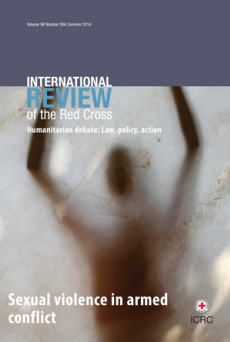Sexual violence has been, and to a large extent continues to be, shrouded in silence. However, the dynamics behind it, including its prevalence and horrific toll on individuals and societies, have been progressively better understood over the last two decades.
 The latest issue of the Review contributes to the discussion on how to further improve access to and quality of services to victims, while also crafting effective prevention strategies.
The latest issue of the Review contributes to the discussion on how to further improve access to and quality of services to victims, while also crafting effective prevention strategies.
This article by Paul Bouvier, Senior Medical Adviser for the ICRC, focuses on a holistic, person-centred approach:
Sexual violence and rape in armed conflicts are widespread phenomena, with devastating consequences. Over the last thirty years, our understanding of these phenomena has significantly improved. Today humanitarian and health professionals understand better the reality, scale and impact of sexual violence on the personal, physical, social and mental health of individuals and communities.
Rape is recognized to have a dehumanizing effect, as much as torture or mass violence. Major efforts are put into providing an effective and ethical response, with respect and sympathy to the survivors. Health and humanitarian assistance contribute to the healing and resilience of survivors and communities. Looking forward, programs must be centered on the person, promoting their autonomy and dignity, and integrating medical, psychosocial and socio-economical responses.
Read other articles of this issue online

